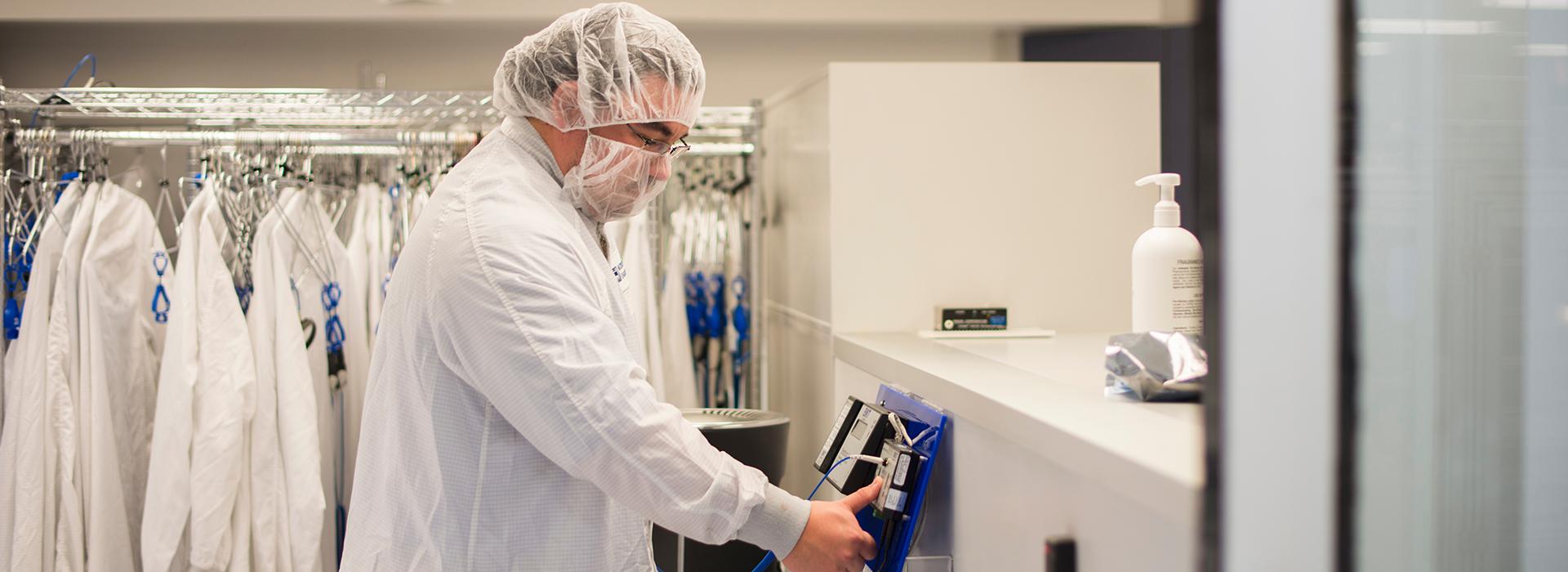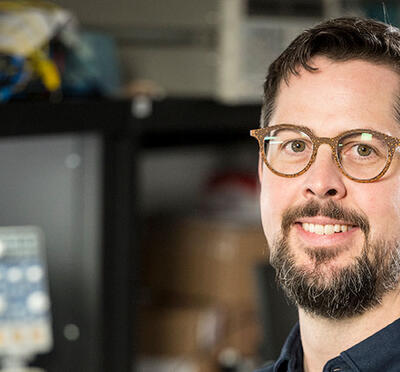In 2011, Terri Fiez saw a growing crisis for Northwest tech companies that could not find enough computer science graduates to fill their job openings. In her role as head of the School of Electrical Engineering and Computer Science at Oregon State University, she decided to meet that need by creating the country’s first online computer science program specifically designed for postbaccalaureate students.
“We did the research, and there were 11 million people unemployed at that time who had bachelor’s degrees,” said Fiez, now at University of Colorado Boulder. “There was a real opportunity to match up the needs of industry with people who are looking for a challenging and interesting career.”
The students saw the opportunity too. The program was launched in partnership with Oregon State’s Ecampus in June 2012, with 101 students enrolled. Enrollment for Winter 2018 is more than 14 times that, at 1,482. The number of graduates per year is now more than double that of the on-campus program: In 2017 there were 338 graduates from the online program, in contrast to 160 graduates from the on-campus program.
But it’s not just about the numbers; it’s about the impact.
“As we started to meet these students, we all realized this was way more significant than the initial idea. The program was truly going to change lives — and in a way we never could have imagined,” Fiez said.
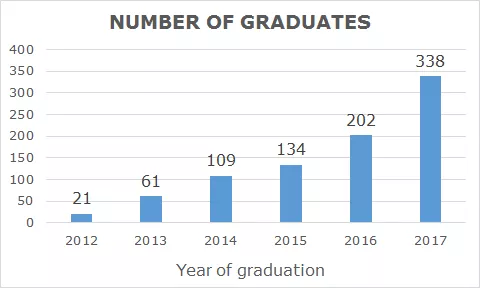
Justin Ihara’s life changed when he became one of the program’s first graduates in 2013.
“Because I have a degree in mathematics, I was able to count all the different jobs that are available in computer science that I wasn’t qualified for,” he said.
After Ihara received his computer science degree from Oregon State, opportunities opened up for him. Immediately after graduation, he landed an internship at MSEI, a biotech company based out of Lake Oswego. That internship developed into a full-time job as a systems and development engineer. More recently, he moved to San Diego, California, where he is a senior software systems engineer for biotech company Illumina.
Maintaining a high level of quality education, so graduates will continue to be successful, is the challenge facing the growing online program. To limit enrollment, admission requirements for GPA and math were made stricter in 2018. The instructors are meeting biweekly to develop a plan for updating and redeveloping the classes, which is necessary in a field that changes rapidly.
“The biggest change since the beginning of the program is the addition of electives,” said Karti Mayaram, acting associate head for the School of Electrical Engineering and Computer Science in the College of Engineering.
Students can choose up to two electives in usability engineering, cybersecurity, open source software development, parallel programming, and mobile and cloud software development. The school is looking to add more electives and to develop specialized tracks for students who want to emphasize a particular field of computer science, such as artificial intelligence or cybersecurity.
When Fiez started the online program, she expected Oregon State would need to move quickly to become established as a leader in a niche for postbaccalaureate computer science education. As it turned out, there were very few followers. But she knew intimately how impactful a program could be, so in her role as vice chancellor for research and innovation at University of Colorado Boulder, she has helped to launch a similar online degree program in computer science that has a slightly different focus, on software development and data analytics, versus Oregon State’s initial focus on mobile software development.
“I don’t see this as competition, and the reason is the demographics are different. For Oregon State, 40 percent of the students were in Oregon and 60 percent are on the West Coast. If we have 40 percent from Colorado and 60 percent from the Midwest, then there’s no overlap,” Fiez said.
“We both have the rest of the world, and there are a huge number of people who are looking for a chance to enter computer science and blend it with their previous education and life experiences.”
To date there are 930 graduates of Oregon State’s online program in computer science.
Where are they now? Here are a few examples.
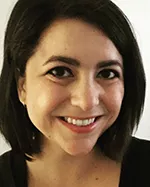
Christa Hash, 2013 graduate
Geocoding software product engineer, Esri, Redlands, California
Previous degrees: B.A. English, M.S. English
“Software engineering has offered me the kind of career for which I am truly suited, requiring fast-paced critical thinking, a results-oriented work ethic, a daily evolving problem-solving skill set, communication-centered teamwork, and the rewards of having contributed to a product that truly benefits users in a concrete way. I believe having changed fields has provided me with a background and set of professional experiences that makes me uniquely qualified for the work that I do.”
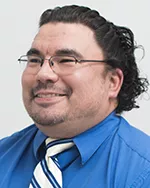
Justin Ihara, 2013 graduate
Senior software systems engineer, Illumina, San Diego, California
Previous degree: B.S. mathematics
“I can remember looking at an article ranking the ‘top 20 jobs in the U.S.’ and coming to the realization that more than a quarter of the jobs were in the field of computer science. Despite this, I was still hesitant to pursue one of these jobs, because I lacked the education in those areas and I already had a bachelor’s degree. Oregon State’s computer science program allowed me to leverage my prior degree and quickly break into those areas. What once seemed like an impossible goal now is my reality.”
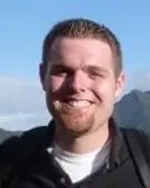
Senior product specialist, Huron, Lake Oswego, Oregon
Previous degree: B.A. physical anthropology/archaeology
“While I will always have a special place in my heart for my former career (archaeology), I am certain that switching to a career in technology was one of the best decisions of my life. The opportunities in tech are endless and continue to grow every day. The work I do now has a direct impact on people’s lives and is transforming a market. The technical ability and problem-solving skills I learned in Oregon State's CS post-bacc program help me daily, both in my individual work and in collaboration with others. The experience was simply invaluable.”
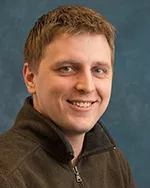
Systems/firmware engineer, HP Inc., Vancouver, Washington
Previous degree: B.S. psychology
“Pivoting to a technology-based career path was a challenging journey that was unquestionably worth the effort. Five years ago it would have been hard to imagine contributing technically to multiple globally launched products, writing firmware, or playing a lead role in developing a prototype product at an R&D lab. Now, there are vast possibilities, and I know they are within reach.”
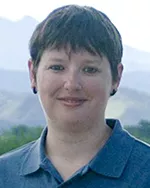
Jennifer Burns, 2015 graduate
Cybersecurity engineer, MITRE Corporation, Bedford, Massachusetts
Previous degree: B.A. music
“I recently graduated from Carnegie Mellon University with an M.S. in information security, where I applied the foundational knowledge in computer science I learned while receiving my degree at OSU. Now, as an engineer at MITRE, I help solve some of our nation's critical cybersecurity problems. My decision to switch careers has led to many rewarding experiences, and I look forward to going to work and making a difference each day.”
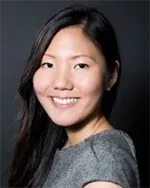
Lead software developer, DemandLink, Portland, Oregon
Previous degree: B.A. anthropology and sociology
“I always thought that I wanted a job that I did well and knew what to expect every day. I never dreamed that what I really wanted was a career that challenged me and forced me to use my brain in creative ways. My work has enriched my life and has revealed a world of endless possibilities.”
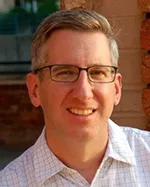
Aviation software engineer, Garmin AT, Salem, Oregon
Previous degree: B.S. mechanical engineering
“I made a dedicated effort toward aligning my professional career with my personal interest in technology, and I can happily report success! In addition to a bachelor’s in computer science I received a master’s in information technology at Colorado State University. My connections through the online degree program at Oregon State allowed me to find a job with Garmin AT. I moved to the beautiful state of Oregon and get to work every day some of the best aviation/navigation embedded system software (and people) out there.”
